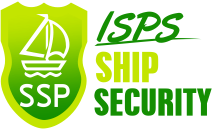QHSSE PROFILER
 |
A Complete Solution to Manage ISPS Compliance. ISPS or the International Ship and Port Facility Security Code is an essential maritime regulation for the safety and security of ships, ports, cargo and crew. The maritime security is a prevailing issue and several incidences have taken place even before the 9/11 attack (for e.g. On 26th February 2000, bombs that were hidden inside two crowded buses in a Philippians’ ferry – Our lady of Mediatrix, exploded and killed 45 passengers). Since the sea is one of the easiest ways to approach an international territory, International Maritime Organisation (IMO) under SOLAS convention chapter XI-2 developed the International Ship and Port Facility Security code – The ISPS code for the safety of ships, ports, seafarers and government agencies. |
|
| ISPS code: | Challenges:
Every regulation comes with its own challenges. The ISPS code is no different and has the following concerns:
|
|
| ISPS Code | Advantages of ISPS Code:
|
Disadvantages of ISPS:
|
Application as per ISPS Code |
||
| ISPS Plans | ||
| ISPS Management | ||







